Zyx Bio 5mg 7 tablets
3,84 €
- Processing: Orders ship within 48 hours.
- Delivery: Germany: 1 day via DHL Express, 3 days via standard DHL.
EU delivery: 1-2 days via DHL Express, 3-4 days via standard DHL. - Shipping Costs: Calculated at checkout.
- Tracking: You'll receive a tracking number once your order ships.
- Return Window: 30 days from delivery for refunds or exchanges.
- Eligibility: Items must be unused and in original packaging.
- Process: Contact us to initiate a return. Refunds processed within 5-7 days after receiving the return.
- Exclusions: Perishables and personalized items cannot be returned.
Description
Zyx Bio 5mg 7 tablets
Symptomatic treatment of allergic rhinitis (including chronic rhinitis) and chronic idiopathic urticaria.
Active substance: Levocetirizine dihydrochloride
Composition
Each film-coated tablet contains 5 mg of levocetirizine dihydrochloride.
Excipient with known effect:
one film-coated tablet contains 79 mg of lactose monohydrate.
For a full list of excipients, see section 6.1.
Dosage
Method of administration
The film-coated tablet should be taken orally, swallowed whole with liquid.
The tablet can be taken with or without food. The recommended dose is once daily.
Dosage
Adults and adolescents aged 12 years and over:
The recommended dose is 5 mg (1 coated tablet) per day.
Children aged 6 to 12 years:
The recommended dose is 5 mg (1 coated tablet) per day.
Children aged 2 to under 6 years:
Zyx Bio tablets are not recommended for use in this age group. For children aged 2 to 6 years, there are other products available for use in children.
Children under 2 years of age:
The use of levocetirizine is not recommended due to the lack of data on the use of the product in this age group.
Elderly people:
In elderly patients with moderate to severe renal impairment, dose adjustment is recommended (see section below “Patients with renal impairment”).
Adult patients with renal impairment:
Since levocetirizine is mainly excreted by the kidneys (see section 5.2), in cases where no alternative treatment can be used, the dosing intervals have to be individualized according to renal function. The dosage should be modified according to the following table. To use the dosing table, creatinine clearance (Cl kr ) in ml/min should be calculated. Cl kr (ml/min) can be calculated from serum creatinine (mg/dl) determination using the following formula:
[140 – age (years)] x body weight (kg)
Cl kr = (x 0.85 for women)
72 x serum creatinine concentration (mg/dl)
Dosage modification in adult patients with renal impairment:
| Degree of kidney function | Creatinine clearance (ml/min) | Dose and frequency of administration |
| Normal kidney function | 80 | 1 tablet once a day |
| Mild renal impairment | 50 – 79 | 1 tablet once a day |
| Moderate renal impairment | 30 – 49 | 1 tablet every other day |
| Severe renal impairment | <30 | 1 tablet every third day |
| End-stage renal disease, dialysis patients | < 10 | Contraindicated use |
Children and adolescents with renal impairment:
In children and adolescents with renal impairment the dose should be individually adjusted based on creatinine clearance, age and body weight.
There are no specific data regarding use in children with renal impairment.
Patients with hepatic impairment:
No dose adjustment is necessary in patients with hepatic impairment.
Patients with renal and hepatic impairment:
In patients with hepatic and renal impairment, dosage adjustment is recommended (see “Patients with renal impairment” above).
Duration of treatment
Do not use for longer than 10 days without consulting a doctor.
Intermittent allergic rhinitis (symptoms present for < 4 days per week or lasting less than 4 weeks) should be treated according to the course of the disease; treatment may be discontinued once the symptoms have disappeared and reinitiated upon their reappearance.
Clinical experience with the use of cetirizine racemate in chronic urticaria and chronic allergic rhinitis covers a period of up to 1 year.
Contraindications
Hypersensitivity to levocetirizine, hydroxyzine, other piperazine derivatives or to any of the excipients listed in section 6.1.
Severe renal impairment with creatinine clearance less than 10 ml/min.
This medicinal product should not be used in patients with rare hereditary problems of galactose intolerance, the Lapp lactase deficiency or glucose-galactose malabsorption.
Contents
Storage method: 15°C – 25°C

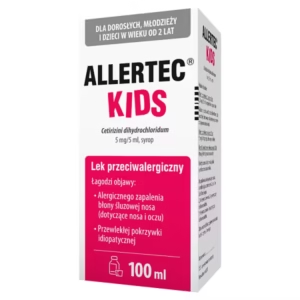

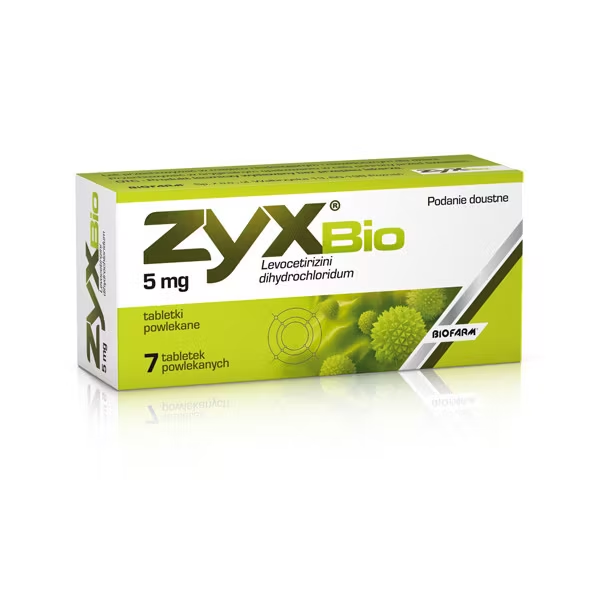

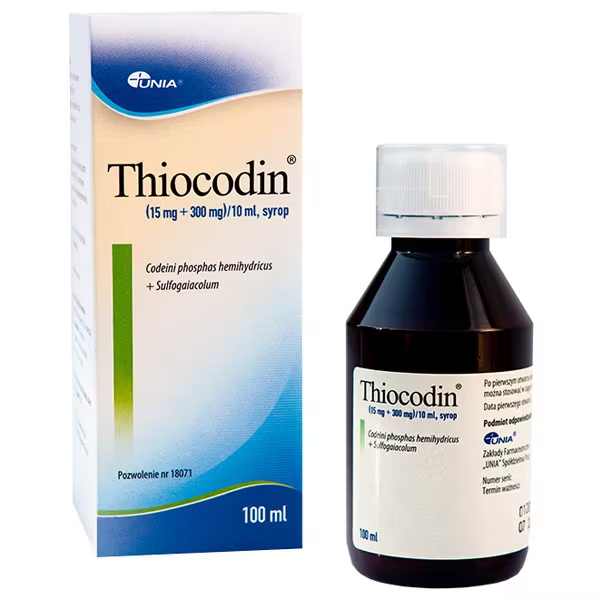
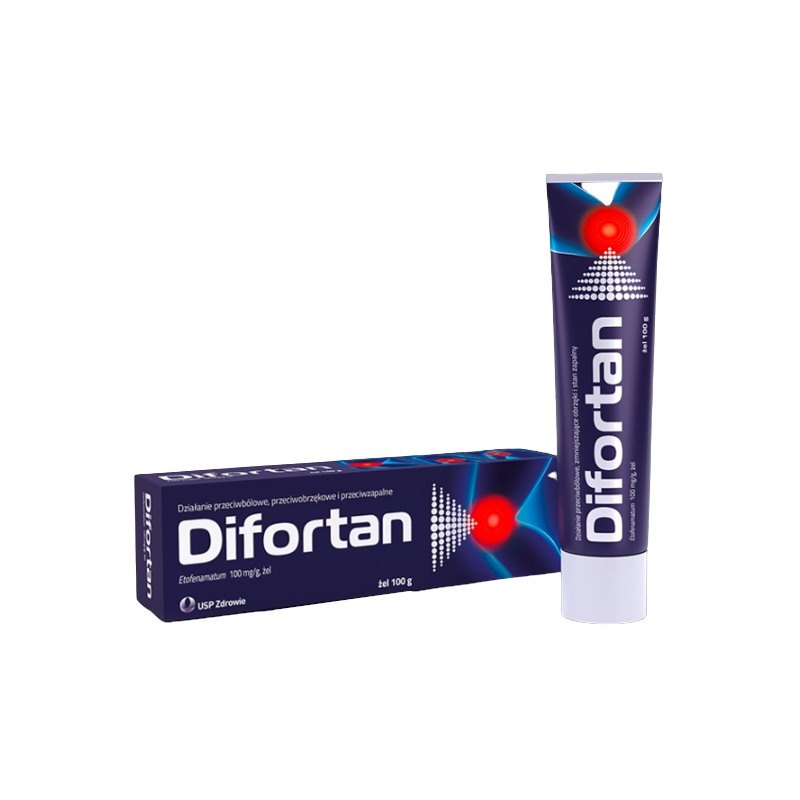
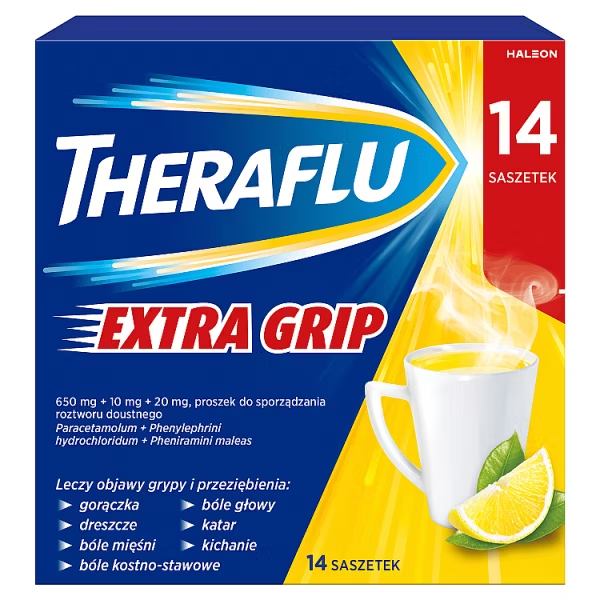
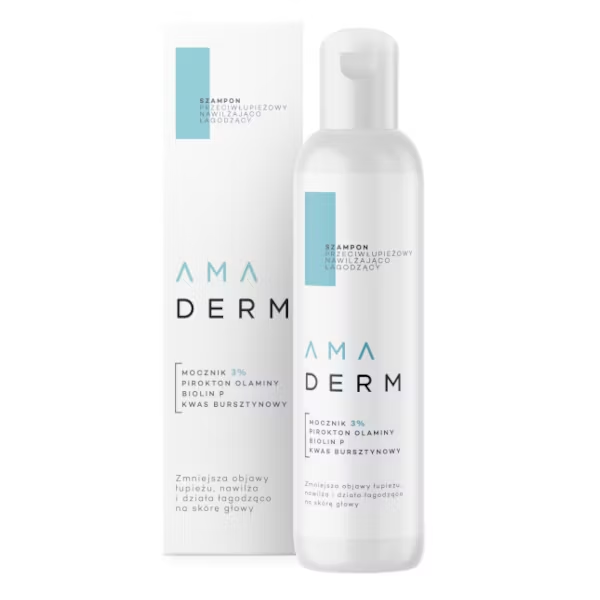
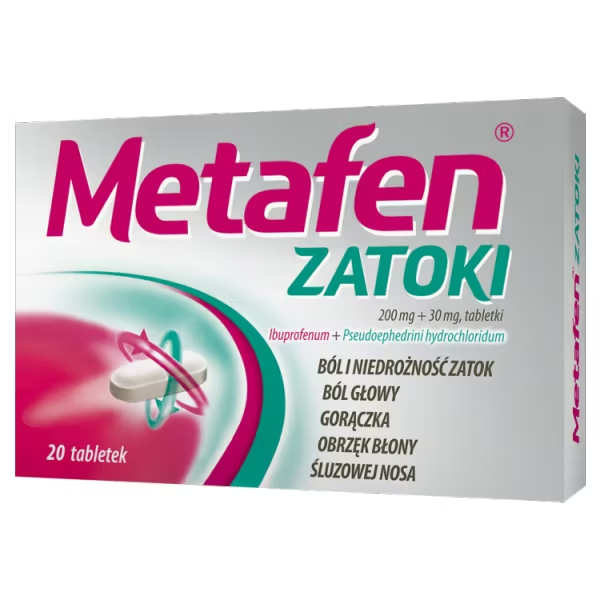



























Reviews
Clear filtersThere are no reviews yet.